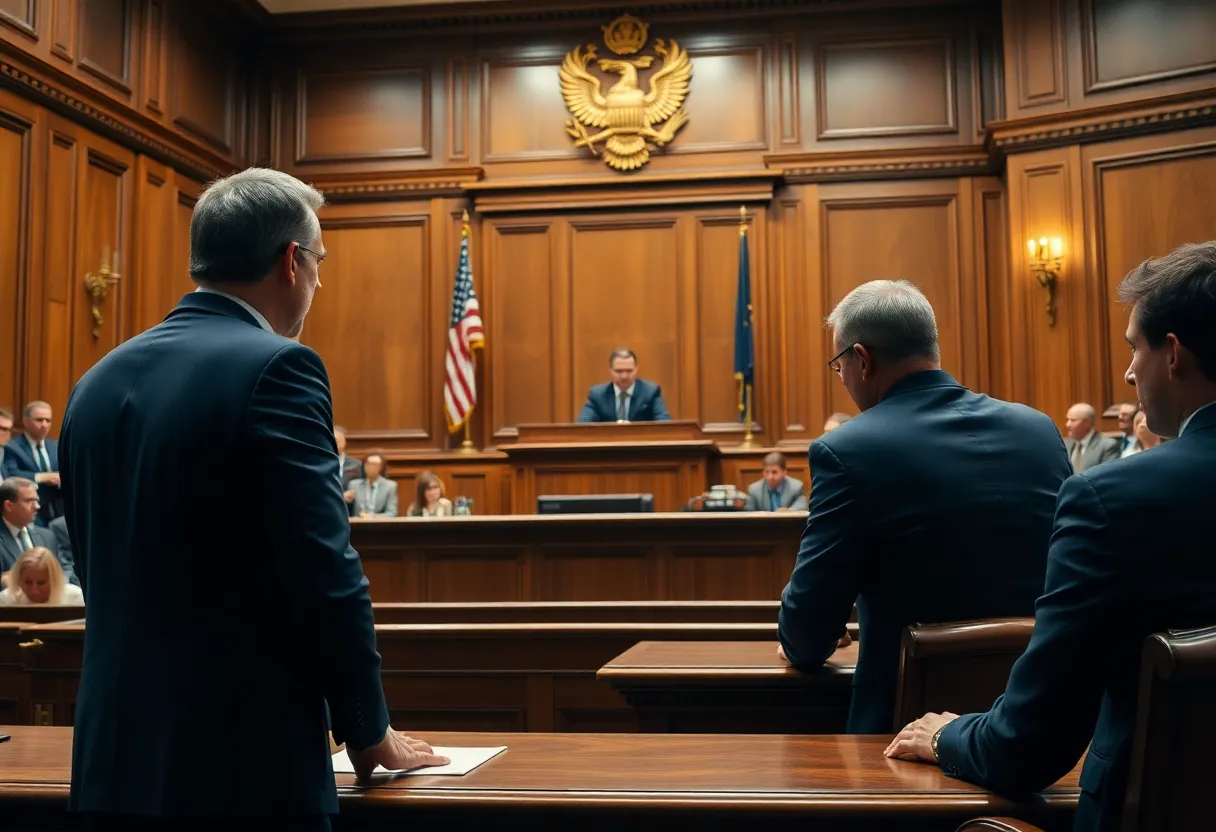

A US appeals court judge leading a contentious hearing on Venezuelan deportations.
A US appeals court judge has raised concerns over the deportation of Venezuelans, comparing their treatment to that of Nazis during WWII. This legal clash showcases tensions between the judiciary and the Trump administration regarding the deportation process under the Alien Enemies Act. Critics argue many deportees did not receive due process, and ongoing legal battles may determine their fate as they challenge the validity of the deportations.
Courtrooms can often be arenas for heated discussions, and a recent case involving Venezuelan deportations has stirred quite a debate. A US appeals court judge, Patricia Millett, took to expressing her concerns during a hearing, bringing to light some surprising comparisons that rattled many. She suggested that **Nazis received better treatment** during World War II than what hundreds of Venezuelans faced when they were deported over alleged gang affiliations. That’s quite a bold statement, and it raises a ton of questions about how we treat individuals accused of crime—especially when they’re far from home.
This entire situation revolves around the Trump administration’s decision to invoke an age-old law—the **1798 Alien Enemies Act**—to facilitate the deportation of about 238 Venezuelans. These individuals were sent to a mega-prison in El Salvador after being labeled as members of a notorious gang, Tren de Aragua. Critics of the action suggest that these deportations happened without the due process that anyone should expect, especially given the serious nature of being accused of gang ties.
During the court hearing, Judge Millett expressed doubt about the government’s approach. She pointed out that many of these deported individuals had little opportunity to defend themselves or challenge the claims made against them. The legality of this process is questionable, raising eyebrows about whether innocent people may have been caught in a governmental rush to judgment.
It seems that Judge Millett’s skepticism isn’t an isolated opinion. Another judge, James Boasberg, had previously stepped in to issue a temporary restraining order against these deportations, voicing strong opinions on the need for individuals facing removal to contest their allegations. He argued that some deportees were adamant about their innocence regarding the gang affiliations that led to their deportation.
Of course, the Trump administration was quick to defend its actions. They labeled the restraining order as **“utterly unprecedented”**, suggesting that such legal battles were brand new territory. Despite the judicial push-back, reports indicate that deportation flights might have continued, raising suspicions of governmental overreach or non-compliance with the judicial ruling.
The tension has certainly ramped up between the judiciary and the Trump administration, with some harsh words thrown around. The President himself criticized Judge Boasberg as a **“constitutional disaster”**, claiming that such legal limitations allowed criminals to slip through the cracks and into the United States. This ongoing dispute brings light to the complex nature of immigration law and how governments wield power in crises.
And what about the deportees, you might wonder? Many authorities recognize that several individuals who were sent back to El Salvador did not have any criminal records in the US. Yet, the administration maintains that careful vetting processes were in place. On the other side, human rights organizations are raising alarms, asserting that these deportations are illegal in the absence of war—throwing another wrinkle into an already tangled situation.
With a federal judge now overseeing the deported individuals’ legal battles in El Salvador, lawyers have filed a habeas corpus petition. They aim to contest the legality of these detentions, pointing out that many deported individuals are innocent bystanders caught up in a chaotic political landscape. Families of those affected have been vocal as well, defending their loved ones’ innocence and challenging the governmental narrative surrounding the deportations.
It seems like this situation is evolving day by day. As the US officials acknowledged the resumption of deportation flights back to Venezuela, many are left wondering what this means for the ongoing diplomatic tensions and the lives of those caught in the crossfire. Will the deportees receive the justice they deserve, or will they remain victims of a broken system?
Keep tuning in, as the story continues to develop and emotions run high on both sides of the debate on immigration, legality, and national security.
News Summary Israel has conducted extensive preemptive strikes against Iran, targeting its nuclear program and…
News Summary The Department of Homeland Security has revoked the work authorization for over 500,000…
News Summary On his 79th birthday, President Trump faces widespread protests known as the 'No…
News Summary Victoria's Secret has shut down its U.S. website due to a security incident,…
News Summary This summer, Atlanta will host free community yoga classes led by Lululemon Ambassador…
News Summary Yasir Felton-Smith, a 5-year-old boy, was safely located after an Amber Alert was…